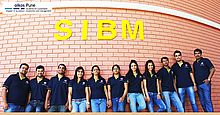oikos Global Case Writing Competition Winners 2013 We are happy to announce the winners of the 2013 oikos Global Case Writing Competition. This year the first prize in...
The oikos FutureLab is the biggest event in the annual oikos calendar which gathers representatives from the entire oikos community. It provides a 2-day platform for 140 participants...
The possibilities are immense when young enthusiastic students join hands to seek solutions for the most complex challenges in our societies. In this month’s issue, learn how oikos Pune...
Creating Hybrid Ventures: Legitimacy and Sustainability Challenges in Social Entrepreneurship The fourth oikos Young Scholars Entrepreneurship Academy provides a unique platform to develop scholars in the early stages of their careers....
How could students improve learning environment at their universities? Why is it still difficult for them to get involved in university governance? What should Georgian universities do in order...


